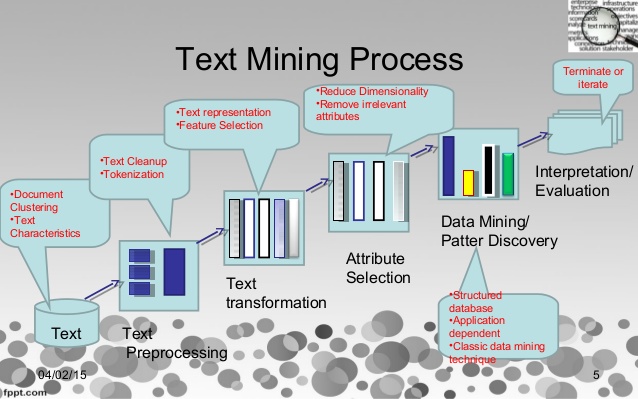Text mining is one of the most important tools currently used by business professionals and established companies. As a relatively new area in the field of computer science, the potential for text mining applications derives from the high amount and level of data available on the internet. It is a process used to extract from all available data engines significant information that can help a company gauge fluctuations in customer or consumer preference and in the process analyze competitor data in order to determine its level of competitiveness—eventually enabling the company to respond appropriately with new business or marketing strategies, or by optimizing the organizational infrastructure.
The main benefits of data mining centre on the fact that it encourages an inter-disciplinary approach which connects businesses with other non-industry specific sectors that can help them integrate valuable data into their system of operation and logistics. This factor helps to promote more fully a company’s client/customer relations by incorporating useful data for the business solutions of their clients, while at the same time increasing its knowledge of the industry along with the evolution of current business practices and strategies. For example, it is used by pharmaceutical companies to dig up information from articles and new patents that can help in discovering new more effective drugs and therapies.
Combining the research from scientific journals, media and news articles, and independent professionals is helping the scientific academia explore diverse theories and new systems that can help its quest for human discovery and which can be applied to business-specific solutions. In this respect, its major advantage is that it helps a company expand its level of expertise and diversify by integrating the discoveries of other areas of human knowledge.
Restriction to database information as stipulated by recent international law or as dependent upon individual national laws, individual copyrights, intellectual property laws, high transaction costs and legal formalities is unfortunately compromising the efficiency and unused potential of data mining applications- as in the case of the UK—although attempts are underway to promote their expansion on the international stage.
Access to all of this virtual data could generate billions in revenue for the local economy and its trading partners, and this is a fact that has been widely recognized by multinationals like Microsoft and IBM, which have invested heavily on data analytics technology since 2012. Yet, this barrier to the global dissemination of available data is not a surprise considering that ‘data’ is the new currency nowadays, with the largest share of the market owned by Google, Facebook and Twitter.
As long as these powerful monopolies control the market, and big corporate interests continue to protect their investment, there will always be a lack of data and information for businesses in general and especially for small businesses or start-ups trying to gain a foothold in the competitive international market scene. Worse still, it will limit the spread of innovation in all its varied forms.











